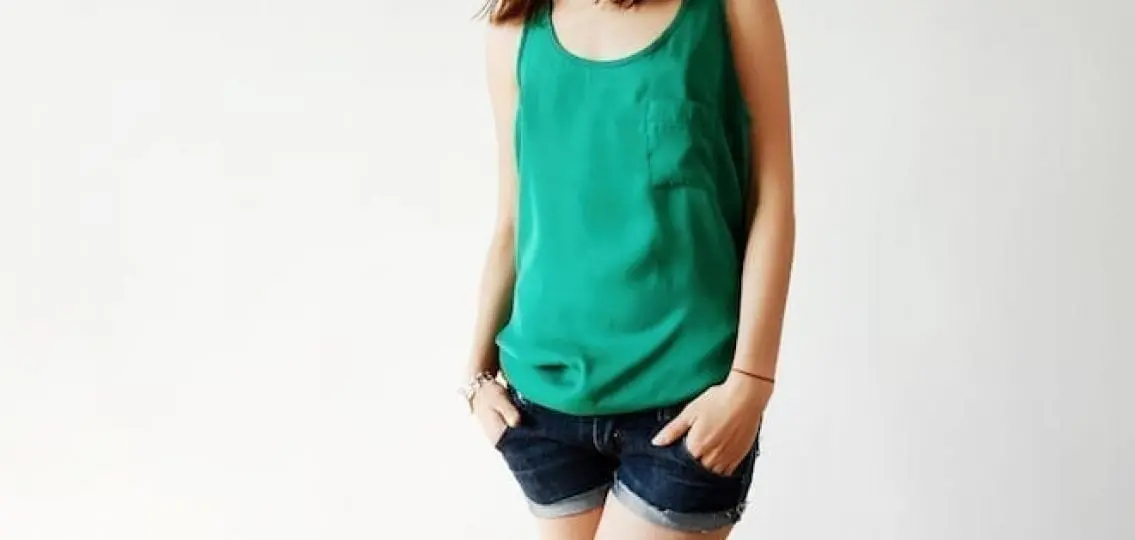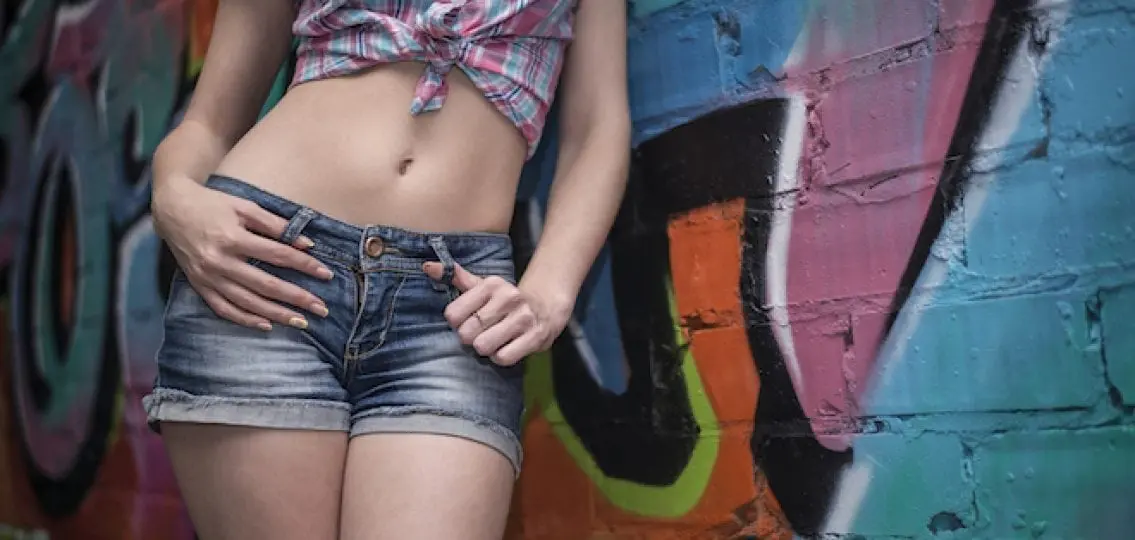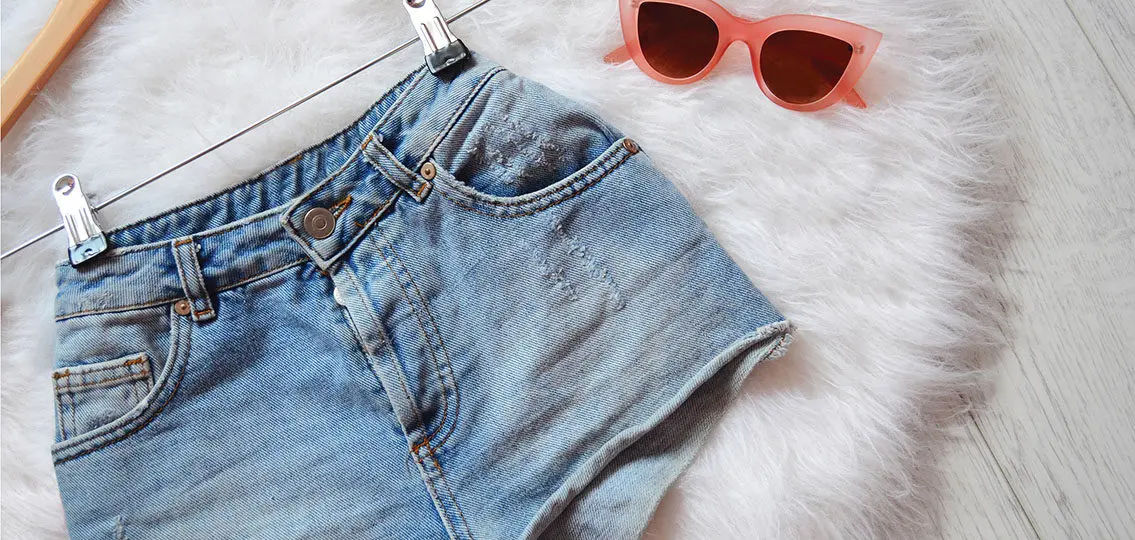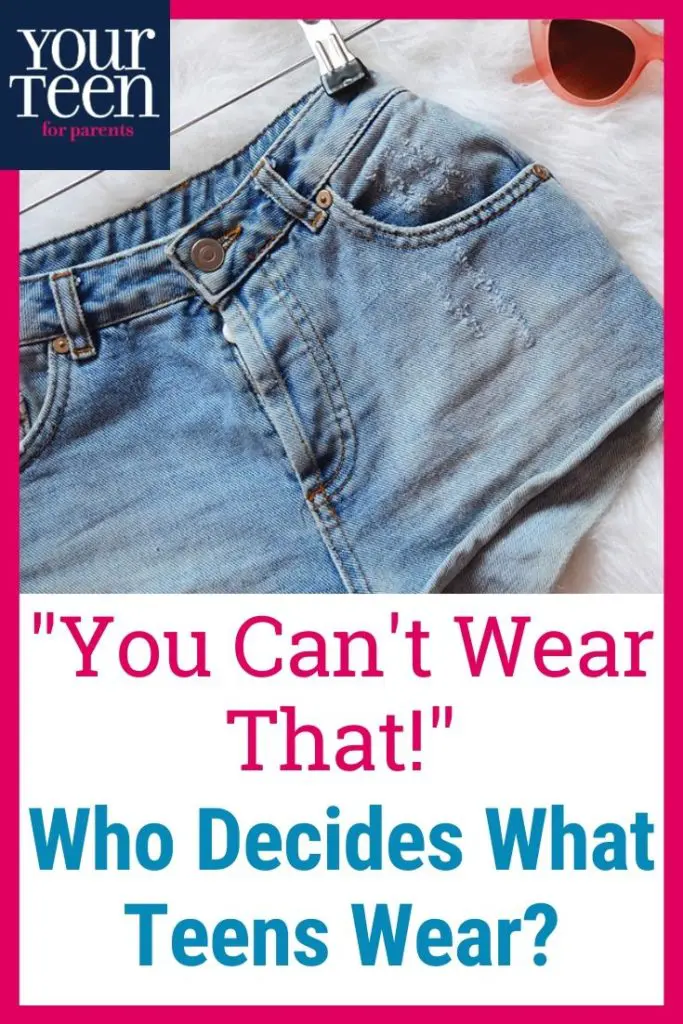What happens when a teen feels one way about a particular issue or problem and the parent has a very different take? At Your Teen, we understand that sometimes you need to look at a problem from multiple perspectives. It can also be helpful to hear from a neutral third party. That’s when we bring in a parenting expert to provide the practical advice you need to bridge the divide and help restore harmony. Here, a parent and a teen have very different takes about what to wear.
Parent | Andrea Askowitz
My daughter is 15. Her favorite outfit is a tube top paired with denim shorts that barely cover her vagina. She argues she should be allowed to wear whatever she wants. She says tube tops and short-shorts are the style; that she feels good in that outfit; that I am a prude.

A week ago, I dropped her off at another girl’s birthday party. As we pulled into the driveway, three girls got out of a minivan; each girl was wearing the same denim shorts and a tube top. I felt so disheartened.
Yes, I know fitting in is age-appropriate, but why is flaunting the body in fashion? I know the answer.
What my daughter doesn’t know is that this fashion trend is demeaning and dangerous.
That society expects a girl (and not a boy) to flaunt her body sets up an unfair dynamic. Girls and women are valued for their bodies first. And the body we’re valued for is not realistic.
Body trends have changed over time, but right now skinny with a big butt seems to be in style. For most girls, this body type is impossible to achieve, which often leads to self-esteem issues and maybe even eating disorders, which can kill.
I want my daughter and all girls to value themselves for their thoughts and talents, not just their bodies.
I’m not a prude; I want my daughter to express herself and to feel sexy, but when she wanted to go to the mall in leggings and a halter top, I blocked her at the door. Expressing herself in clothing that suggests she’s older than she is, and that suggests sex, scares me.
My daughter is 15. She is too young to handle the sexual attention that skimpy, butt-flaunting clothes might attract.
I know that nothing she wears gives anyone the right to assume anything or to hurt her, but there are people out there who prey on girls. It’s my job as her mother to protect her.
Andrea Askowitz is the author of My Miserable, Lonely, Lesbian Pregnancy and the host and producer of the podcast Writing Class Radio. She just finished her second memoir and is in search of an agent.
TEEN | Natasha Askowitz
My mom and I had a parent-teacher conference with my eighth-grade science teacher. Here was the problem: I would go up to her desk to ask her a question and the teacher would tell me that everyone was looking at my “ass” and to sit down, as if it was my fault that people were looking at my butt. She would tell me that boys were doing poorly in her class because I was a distraction to them.
At the conference, she said that I should wear longer shorts even though my shorts were already long. They were uniform shorts. Then, right in front of my mom, she said, “When you stand up, you give the boys an erection.”
Am I just supposed to never stand up in class because the boys can’t control themselves? My science teacher was blaming me for the boys’ actions. That’s just wrong. The boys need to take responsibility for their own actions.
Sometimes I wear crop tops.
When I have on an outfit that I like, I feel better about myself. I feel like me, like I’m expressing who I am.
I don’t think it’s a big deal if my stomach shows. My mom hates it when my stomach shows and exaggerates so much when I wear shorts. She says, “Your vagina is showing.” She thinks I’m not going to be safe around men, but when I hang out at my friends’ houses or go to the mall, I never feel unsafe.
Sometimes it feels like my mom is acting like my science teacher. She won’t let me wear what I want to wear because she is scared of what might happen. This is victim-blaming. She’s taking away my freedom to wear whatever I feel like wearing because there are gross people out there. She says I’m advertising for sex, which I am not. Rapists don’t discriminate, and even if they did, they are the ones who should be punished, not me.
Natasha Askowitz loves clothes. She is spending her tenth-grade year in Madrid, Spain, with her family and is taking all her classes in Spanish.
PRO | Amy Lang
Adolescence is a time of personal discovery, separation, and rebellion from parents. Kids often explore new and different clothing, friends, music, and religious and political beliefs at this time. Andrea is giving Natasha a lot of fuel to rebel because she is so adamant about what’s okay for her to wear. The more Andrea complains and comments, the more Natasha pushes back.
It is true that girls and women are often valued for their bodies and how they look before they are valued for who they are as people. As Andrea points out, there are multiple negative consequences of this, and one of the ways to address this is to do what she is doing: talking about it with Natasha.
Ideally, Natasha should be able to decide what she wears without fear of any negative consequences from her mother or anyone else, but this is not the world we live in.
Every day, Natasha should think clearly and thoughtfully about whether she is willing to put up with other people’s reactions, how she’s going to handle it if she gets unwanted responses, and whether she cares if someone else feels uncomfortable because of her clothes. Our culture is moving away from slut-shaming and victim-blaming, but we are not quite there yet. (Her generation is going to lead us there, for sure.)
Andrea should take time with Natasha to have a calm and open conversation about how she decides what to wear and when so they can find a middle ground when it comes to her choices. Together they should decide on some guidelines about the clothing she chooses. Teens are fully capable of having a reasoned, calm dialogue about all kinds of things, but their parents need to lead by example.
The teacher (who should be reported for sexual harassment and bullying) is a perfect and extreme example of someone making a decision based on clothing. Natasha and Andrea should create a few go-to phrases Natasha can use when someone harasses her or comments on her clothing in a way that makes her feel uncomfortable. For example, she could respond loudly, “What did you just say?” The person, especially if they’re in a group, is unlikely to repeat themselves. She should only use these go-to phrases if she is with another person and feels safe; if that’s not the case, Natasha should focus only on safely getting away from the situation.

I suspect Andrea’s intense reaction to her daughter’s clothing choices is fueled by concerns about people judging her parenting. Everyone is always judging our parenting, no matter what our kids are wearing. Andrea’s focus should be on her relationship with her daughter, not her clothes, and how to help her continue her development into a strong, smart, compassionate, and confident woman who can weather all of life’s storms.





